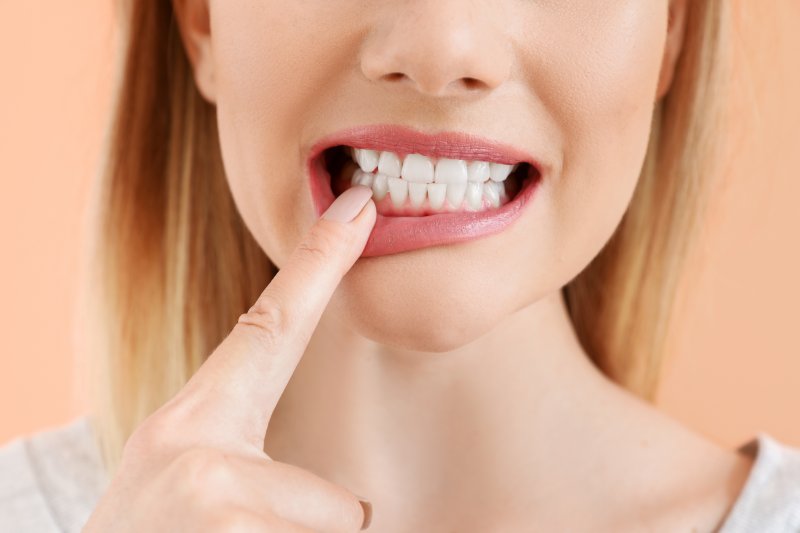
Have you noticed something off about your smile recently? It happens to countless people every day. They look in the mirror one morning and wonder if that gap has always been there or if their teeth always overlapped that way. Well, teeth shift gradually over time, meaning people often won’t notice until there’s a significant change. It’s a common problem that may happen for several reasons. Read on to learn more about the causes and how your dentist can help.
5 Common Causes of Shifting Teeth
Most people believe that teeth can only move with orthodontic treatment, but that’s far from the truth. The following are a few reasons why shifting teeth may occur.
Aging
Like the rest of your body, your jawbone and ligaments change over the years. The ligaments, tissues, and fibers comprising the jaw become weak, causing the teeth to loosen and shift your bite. Lips also get thinner over time and can push your teeth into a new position.
Jaw Movement
As you age, your jaw structure changes and can contribute to tooth movement. Over time, your lower jaw grows forward and becomes narrower, causing your lower teeth to crowd together and overlap. When the teeth become misaligned, it alters your bite and will eventually lead to the development of gaps in your upper teeth.
Teeth Grinding
Teeth grinding, also known as bruxism, is much more common than you may realize. Studies show that 10% of adults and 15% of children grind their teeth. It’s a common stress response and often happens while you sleep. The pressure of grinding or clenching can shift your teeth through force and wear.
Periodontal Disease
Gingivitis and gum disease can destroy your gum tissue and jawbone, weakening your tooth’s support system. If left untreated, the infection can spread and cause your teeth to shift.
Tooth Loss
Regardless of whether it’s age-related or from a sports injury, a gap in your smile can cause neighboring teeth to shift and change your overall bite. As the other teeth spread out, you may develop more gaps in your teeth.
How Can My Dentist Correct Shifting Teeth?
If your teeth have already moved, don’t worry – there are several ways your dentist can get your bite back on track! You can achieve a straight smile once again with one of the following treatments:
- Porcelain Veneers – These thin, customized porcelain shells can disguise severe stains, chips, or gaps. Veneers are a popular cosmetic treatment because they can instantly give you a whiter, straighter smile.
- Invisalign – The clear aligners are a fast, discreet, and convenient orthodontic treatment. It can address crowding and bite misalignment issues without the hassle of metal wires and brackets. No one may even notice you’re wearing it!
- Dental Bonding – This treatment is a more affordable approach to porcelain veneers. If you have mildly misaligned teeth, dental bonding can help you achieve a straighter smile in as little as one appointment!
Teeth shifting is a natural part of life. It can be discouraging if you’re now self-conscious of your teeth, but thanks to modern dentistry, your dream smile isn’t far from reach.
About the Practice
Park Street Dental offers patients of all ages complete, high-quality dental care that combines the latest techniques with old-fashioned hospitality. Our dental team’s top priority is to help you feel as comfortable as possible while providing everything you need. If you’re self-conscious about your shifting teeth, we offer several services in cosmetic dentistry to help restore your smile and confidence. Schedule a consultation with one of our dentists via our website or call (614) 875-9500.
